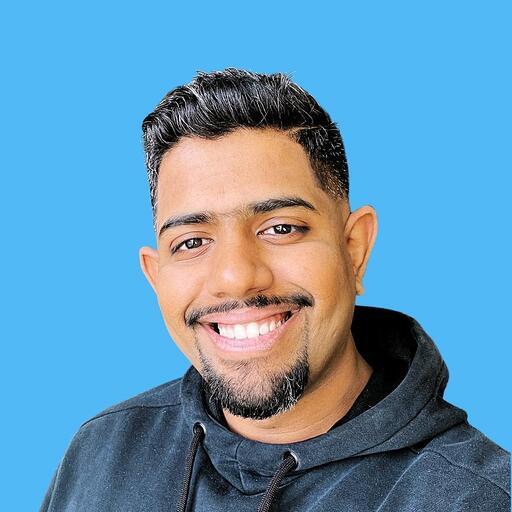
Episode 28
Enabling a data-driven and innovative engineering culture at Amplitude

Shadi Rostami
SVP of Engineering at Amplitude
For the engineering team at digital analytics company Amplitude, real-time customer feedback and cutting-edge North Star metrics play a key role in helping them adapt their tech stack and stay ahead in a rapidly evolving market.
To learn more about the innovative approaches at Amplitude, we sat down with their SVP of Engineering, Shadi Rostami, for a discussion on the significance of ownership, accountability, and a founder’s mindset in shepherding a company’s growth.
Join as we discuss:
Developing a growth mindset to enable a successful engineering career
Shadi’s engineering principles, including “ship fast with quality”
How to scale platforms through informed, data-driven prioritization and strategic product focus
A podcast for architects and engineers who are building modern, data-intensive applications and systems. In each weekly episode, an innovator joins host David Joy to share useful insights from their experiences building reliable, scalable, maintainable systems.

David Joy
Host, Big Ideas in App Architecture
Cockroach Labs
Latest episodes

Discussing the Patterns of Distributed Systems with Unmesh Joshi
Unmesh Joshi
Principal Consultant at Thoughtworks and Author of Patterns of Distributed Systems

How to simplify your software architecture
Rob Reid
Technical Evangelist at Cockroach Labs

Behind the scenes with Vimeo’s Director of Enterprise Architecture
Sachin Joshi
Director of Enterprise Architecture at Vimeo

How to leverage real-time data processing for enterprises
Andrew Sellers
Head of Technology Strategy at Confluent

Inside the Mind of the Chief Architect at Index Exchange
Joshua Prismon
Chief Architect at Index Exchange

Solving for Scale: Real-time Retail Experiences with Endear's CTO
JP Grace
Endear

Data, Acquisitions, and AI: Insights from FiscalNote's CTO
Vlad Eidelman
CTO and Chief Scientist at FiscalNote

Discussing Data Trends in the AI Era
Gajanan Chinchwadkar
CTO at Hypermode

Unwrapping Moonpig: Architectural Insights into Personalization and Scalability
Alexis Lowe
Principal Engineer at Moonpig

Solving for data intelligence at scale
Madalina Tansie
Chief Technology Officer at Collibra

Simplifying solutions architecture with Brian Johnson of Booz Allen Hamilton
Brian Johnson
Sr. Solutions Architect at Booz Allen Hamilton

How to make your applications smarter
Rod Senra
VP of Engineering at Loadsmart

Scaling for 2 billion events per day with Principal Software Engineer at Red Ventures
Majid Fatemian
Principal Software Engineer, Data Platform at Red Ventures

The data behind digital marketing: A conversation with Bluecore’s Software Architect
Mike Hurwitz
Software Architect at Bluecore

A Lesson in Scaling: How Kami handled 25x growth with CTO and Co-Founder Jordan Thoms
Jordan Thoms
CTO & Co-Founder at Kami

Mastering Multi-Cloud with PwC’s Erol Kavas
Erol Kavas
Director at PwC Canada

From FedEx to Five Guys: Designing digital experiences with Yext’s VP of Software Engineering
Matt Bowman
VP of Software Engineering at Yext

Reliability and scalability in a data-driven world with Fivetran’s VP of Platform Engineering
Mike Gordon
VP of Platform Engineering at Fivetran

Enabling a data-driven and innovative engineering culture at Amplitude
Shadi Rostami
SVP of Engineering at Amplitude

How Estée Lauder scales strong engineering culture
Meg Adams
Executive Director of Platform Engineering at Estée Lauder

Can I take your order? Building conversational AI to improve the customer experience
Akshay Kayastha
Senior Engineering Manager at ConverseNow

Engineering resilient systems: Rescuing old treasures and unleashing modern capabilities
Marianne Bellotti
Author, Engineering Leader, Systems Geek

The Full Package: How Route architects its all-in-one post-purchase platform
Siddhartha Sandhu
Engineering Manager at Route

A historical journey in developer technologies
Mike Willbanks
CTO at Spark Labs

From Legacy to Cloud: Success stories from migrating mission-critical applications
Kishore Koduri
Senior Director of Enterprise Architecture at Ameren

Building purpose-driven engineering cultures
Jason Valentino
Head of Engineering Enablement at BNY Mellon

Modernizing Insurance Application Architecture at New York Life
Mike Murphy
Corporate Vice President and Life Insurance Domain Architect at New York Life

Innovation and Disruption: How Materialize pioneered a new era in data streaming
Arjun Narayan
Co-Founder and CEO at Materialize

Stories from an SRE: How Hans Knecht builds better developer experiences
Hans Knecht
Cloud Consultant at Knechtions Consulting (Ex: Capital One; Ex: Mission Lane)

Inside Chick-fil-A’s infrastructure recipe for a perfect customer experience
Brian Chambers
Chief Architect at Chick-fil-A Corporate

Modernizing from the Mainframe: An Exploration of Distributed Systems
Chris Stura
Director, PwC UK

IoT Standards & Data Mesh: Utility Facility App Architecture
Grant Muller
Vice President, Applications and Technology Architecture at Xylem

Relational Data Problems: Doubble Dating Application Architecture
Mattias Siø Fjellvang
CTO & Co-Founder at Doubble

From Legacy Systems to Limitless Scaling with Paycor’s Systems Engineering Fellow
Adam Koch
Systems Engineering Fellow at Paycor

How to Understand Problems & Build Better Software with Technical Leader Joe Lynch
Joe Lynch
Technical Leader

Observability in the Cloud & Dataflow Modifications with Yolanda Davis from Cloudera
Yolanda Davis
Principal Software Engineer, Data Flow Operations

Early Days at Google & Building CockroachDB with Peter Mattis
Peter Mattis
Co-Founder and CTO of Cockroach Labs

Database Benchmarking Efficiency with OtterTune’s Andy Pavlo
Andy Pavlo
Associate Professor of Databaseology at Carnegie Mellon and Co-Founder at OtterTune

Observability & Statelessness with TripleLift’s Chief Architect
Dan Goldin
Chief Architect at TripleLift

Understanding AI: PubNub CTO Stephen Blum’s Key to Faster App Development
Stephen Blum
PubNub

Building reliable systems with DoorDash's Matt Ranney
Matt Ranney
DoorDash

Real-Time Data Capturing: The Future of Fitness Technology
Paul Lawler
Head of Software at Wahoo Fitness

Building Efficient App Architecture with Alloy Automation’s Gregg Mojica
Gregg Mojica
Co-Founder and CTO Alloy Automation

Unleashing the Power of Hiring Software with Greenhouse CTO Mike Boufford
Mike Boufford
CTO at Greenhouse Software

Decoding Data Warehousing: Insights from Ken Pickering, SVP of Engineering at Starburst Data
Ken Pickering
Senior Vice President of Engineering, at Starburst Data